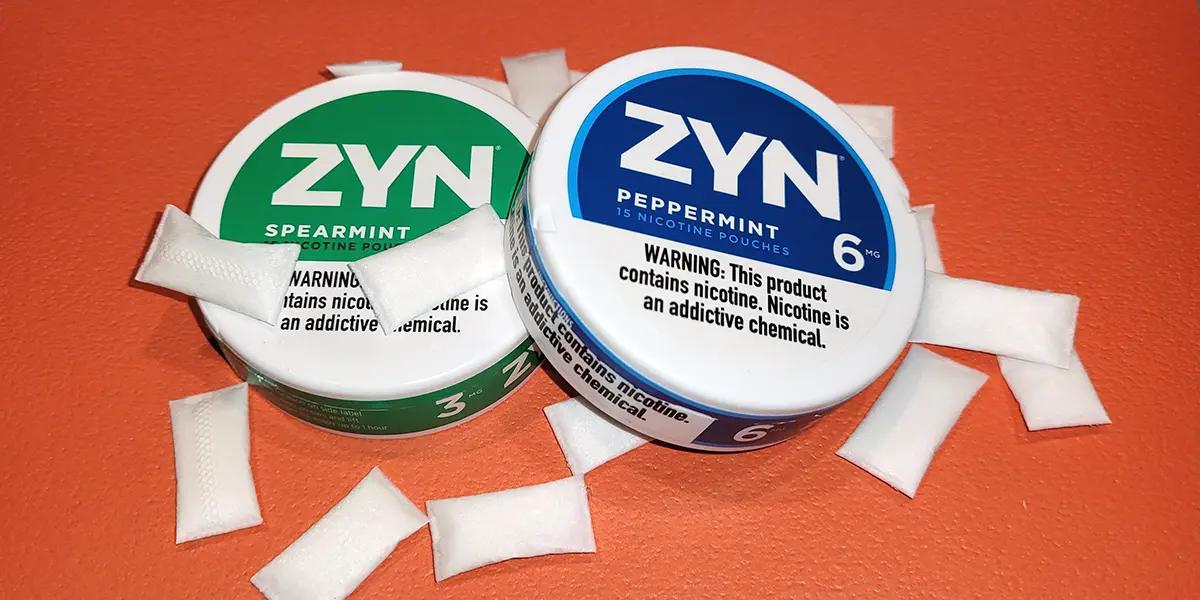The process of finding out how long weed stays in your system after a couple of puffs begins with looking at drug tests and how THC is detected. Several factors matter, like your metabolism, body mass index, and how hydrated you are.
These all affect how long THC stays in your body. If you look closer, you can learn how your body gets rid of THC. There are also ways to speed up this process. Understand more about cannabis use and what it means for drug testing results.
Key Takeaways
- Understand the duration of weed in your system varies based on factors like metabolism, frequency of consumption, and hydration levels.
- Different detection methods like urine, blood, saliva, and hair tests provide insights into THC presence in the body.
- Factors such as metabolism, body mass index (BMI), and hydration play crucial roles in determining how long weed stays in your system.
- Learn about the physiological process of THC elimination, including absorption, distribution, breakdown, and metabolism in the body.
- Effective strategies like regular exercise, balanced diet, and hydration can help expedite THC clearance for faster detoxification.
Must Read: What Are Three Things You Could Do If You Were Asked To Become An Advocate For Health and Wellness?
Overview of THC Detection Methods
Drug tests for THC can be done in different ways. These include urine, blood, saliva, and hair tests. Urine tests are popular because they are easy and cheap. Blood tests give real-time results but they have a shorter detection window. Saliva tests can detect THC right after you use it.

Hair tests show long-term use. Each method has its own details and detection ability. This helps people know if cannabis is in their system. It’s important to understand these methods to find out how long weed stays in your body.
Understanding Urine Tests
Urine tests are a popular way to check for marijuana use. These tests look for THC metabolites in the urine. This shows if someone used cannabis recently.
The time these tests can find THC in your system is known as the detection window. It can change based on different factors. These include how often you use, your body fat percentage, and your metabolic rate.
By understanding how these urine tests work and what affects detection times, you can see how long THC might stay in your body after using weed.
Insights into Blood Tests
Blood tests measure THC levels in the blood very accurately. They work well for finding recent marijuana use. This is because THC breaks down quickly in the body. Unlike urine tests, which look for THC metabolites, blood tests find the psychoactive compound itself.
Blood tests can only detect THC for a shorter time, usually a few hours to a couple of days after consumption. People often use blood tests when they need quick and precise results.
Evaluating Saliva Tests
Saliva tests are easy to use and do not hurt. They give a quick view of recent drug use. These tests can find THC soon after you consume it, usually within 24-48 hours. How often you use and how your body processes it can change detection times.
Saliva tests are good for catching recent drug use, making them fit for roadside testing. However, they might not work as well for finding past marijuana use when you compare them to urine or hair tests.
The Role of Hair Tests
Hair tests are important for finding THC for a long time. These tests can show marijuana use for up to 90 days after consumption. This is a longer detection window than other methods. When a person uses cannabis, THC metabolites get stored in hair follicles.
This makes hair testing a trustworthy choice for spotting chronic users. While blood tests and urine tests are more common, hair tests give a detailed look at long-term drug use patterns in people.
Also Read: Master Reiki Session with Bioresonance Frequency Therapy for Deep Healing
Key Factors Influencing THC Retention
Several important factors affect how long THC stays in the body. These include your metabolism rate, body mass index (BMI), hydration levels, and how often you use cannabis. Metabolism is key because it shows how fast THC is broken down and removed.
If you have a higher body fat percentage, you may keep THC in your system longer. Also, how hydrated you are can influence how well your body cleans out THC.

Lastly, using cannabis more often can extend the time THC remains in your body. Together, these factors help to decide how long THC will be detected in your body.
How Metabolism Affects Drug Retention
Body metabolism is very important in how long drugs, like THC from weed, remain in the body. Everyone’s metabolism is different. This affects how long drugs stay in the system.
Faster metabolisms usually break down substances faster. This leads to shorter detection times. On the other hand, slower metabolisms can keep drugs in the body longer, especially in fat tissues where THC can build up. Knowing about your metabolism can help you figure out how long drugs may stay and plan detox methods for better clearance.
The Impact of Body Mass Index (BMI)
The Impact of Body Mass Index (BMI): Body mass index (BMI) is important when it comes to drug tests. It can affect how long weed stays in your system. THC, the active compound in marijuana, tends to build up in fat cells.
People with more body fat may keep THC in their system for a longer time. In contrast, those with lower BMIs may process THC faster, leading to shorter detection times. Knowing your BMI can help you understand the length of time marijuana might be detectable in your body.
Hydration Levels and Their Effects
Staying well-hydrated affects how long weed stays in the system. Drinking enough water can help clear THC more quickly. This is because it increases urine production, which can lead to a shorter detection window in urine tests. On the other hand, not drinking enough water can keep THC metabolites in the body for longer.
So, it is important to stay properly hydrated if you are worried about how long weed will show up in tests. Being hydrated is good for your overall health, and it helps the body remove substances more effectively.
Frequency of Consumption
Understanding how often you use marijuana can affect how long it stays in your body. Regular users, like daily smokers, usually have longer detection times. This is because THC builds up in fatty tissues.
On the other hand, occasional users or those who have just used a small amount will have a shorter detection window. So, the frequency of use relates directly to how long marijuana remains detectable. This can change how long it takes for your body to clear it and can affect the risk of a positive drug test.
Physiological Process of THC Elimination
THC leaves the body mainly through metabolism. After you consume it, THC gets into your blood and spreads to different tissues, like fat cells. The body breaks THC down into metabolites using processes such as oxidation and conjugation.
This turns THC into forms that can be easily removed. Later, these metabolites exit the body through urine, feces, and sweat. How quickly this happens depends on several factors, including your metabolic rate, hydration levels, and your body processes.
THC Absorption and Distribution
THC enters the bloodstream quickly when someone smokes marijuana. From the blood, it goes to different organs, such as the brain. This journey causes the effects people feel when using marijuana.
How THC spreads in the body depends on factors like metabolism, body fat percentage, and how often someone uses marijuana. It is important to know this process to understand how long THC stays detectable in the body.
Breakdown and Metabolism of THC
When THC breaks down and is processed in the body, it turns into metabolites. The liver handles these metabolites, which are then removed from the body through urine or feces. How fast THC breaks down depends on the metabolic rate.
This affects how long it can be detected in the system. Knowing this process helps us understand the elimination timeline of THC in drug tests. Other factors, like body mass index and body mass, also impact the speed of breakdown.
Also Read: Topamax Ruined My Life: The Impact on Mental Health
Effective Strategies to Expedite THC Clearance
Regular exercise, a healthy diet, and good hydration can help remove THC from the body faster. Exercising helps burn fat cells where THC gets stored, which makes it leave the body more quickly.
Eating nutritious food also helps the body work well during detox. Drinking plenty of water helps wash out toxins, including THC metabolites. By adding these habits to your routine, you can improve how your body detoxifies, which helps clear THC more quickly from your system.
Benefits of Regular Physical Exercise
Regular physical exercise can help clear THC from your body faster. When you exercise, your metabolism gets better, which helps reduce the time THC stays in fat cells.
A higher metabolic rate helps break down THC metabolites more quickly. This leads to a shorter detection window for THC. Additionally, when you sweat during workouts, your body gets rid of toxins, including THC, through your skin. Keeping active not only supports your overall health but also helps detoxify your body more quickly.
Importance of a Balanced Diet
A balanced diet is important for speeding up the removal of THC from the body. Foods that are rich in nutrients help the metabolism, which helps break down THC and its byproducts. Eating fruits, vegetables, whole grains, and lean proteins is good for health and supports the body’s detox process.
Staying hydrated and getting enough fiber also helps get rid of toxins effectively. It’s best to avoid processed foods and too much sugar. This helps keep energy levels steady, which can aid the body in getting rid of THC.
Hydration Strategies for Faster Detox
To improve the detox process, drink more water. Staying hydrated helps get rid of toxins, like THC metabolites, through urination. Drinking a lot of water can help your body flush out these substances better.
This might shorten the detection window for drug tests. Adding detox drinks like herbal teas or juices can also help with cleansing. Staying hydrated is important for removing toxins quickly. It’s a simple but effective way for a faster detox.
Conclusion
In summary, knowing how long weed stays in your system after a couple of puffs is important for understanding drug tests better. Things like body fat percentage, metabolic rate, and how often you use it play a big role in THC detection times.
You can use methods like exercise, hydration, and a healthy diet to help get THC out faster. Being aware of detection times and personal factors can help you make smart choices about marijuana use and detoxing.
Frequently Asked Questions
1. What is the typical duration THC stays in a sporadic user’s system?
THC usually remains in a casual user’s body for around 3 to 7 days if they don’t use it often. This time can change depending on factors like metabolism, body mass index (BMI), hydration levels, and frequency of use. Good detox methods such as exercising, eating right, and staying hydrated can help remove THC faster.
2. Will 2 puffs of weed show up in a drug test?
Using just 2 puffs of weed usually won’t cause a positive result in a drug test, especially if the test has a higher detection limit. However, individual factors like your metabolism and the frequency of use can affect the results.
3. How long will 4 hits of a joint stay in your system?
The time that 4 hits of a joint stays in your system depends on a few things. These include how fast your body processes substances, how much water you drink, and how often you use it. Usually, it can be found in urine tests for as long as 30 days, but this can change.
4. What is the longest weed can be detected in urine?
THC may show up in urine tests for as long as 30 days. This varies based on how often you use it and your metabolism.
5. How long do you stay after smoking weed?
THC can remain in your body after smoking weed for different amounts of time. This depends on how it is tested. Things like your metabolism, body mass index (BMI), hydration levels, and how often you use weed can affect how long THC stays in your system. Knowing these factors can help you guess how long THC might be detectable in you.
6. How long does a puff of vape stay in your system?
A puff of vape can stay in your body for different lengths of time. This depends on your metabolism, how often you use it, and the kind of vape you use. Generally, traces can be found in urine for days to weeks. In blood, they can be found for hours to days. In saliva, it usually lasts for a few hours.
7. How long does cannabis stay in your system for a blood test?
THC is usually found in blood for 12-24 hours after use. This makes blood tests good for catching recent cannabis use.
8. Can a couple of puffs be detected in a hair follicle test?
Hair follicle tests can find cannabis use for up to 90 days. But, they might not catch minimal use like just a couple of puffs.
9. Does drinking lots of water help eliminate THC from my system?
Drinking a lot of water can help your body get rid of THC. But, drinking too much water won’t make you pass a drug test.
10. How does body fat percentage affect THC detection?
THC is stored in fatty tissues. So, people with more body fat may have THC in their system longer.
11. Can I speed up the elimination of THC with exercise?
Exercise might help get rid of THC faster by speeding up your metabolism. But, how well it works can vary from person to person.



